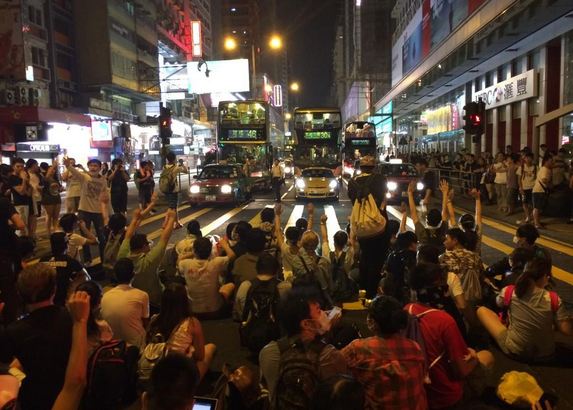
PORTLAND, Ore. — Immigrants who have spent years fighting to change the country’s immigration system are getting newfound support from liberal activists, moms and first-time protesters motivated by a visceral narrative: President Donald Trump’s administration separating children from their parents at the U.S.-Mexico border.
Groups that pulled off massive women’s marches the past two years and other left-leaning rallies are throwing their weight behind migrant families Saturday. More than 600 marches could draw hundreds of thousands of people nationwide, from immigrant-friendly cities like Los Angeles and New York City to conservative Appalachia and Wyoming.
Though many are seasoned anti-Trump demonstrators, others are new to immigration activism, including parents who say they feel compelled to show up after heart-wrenching accounts of children forcibly taken from their families as they crossed the border illegally. In Portland, Oregon, for example, several stay-at-home moms are organizing their first rally while caring for young kids.
“I’m not a radical, and I’m not an activist,” said Kate Sharaf, a co-organizer in Portland’s event. “I just reached a point where I felt I had to do more.”
She and her co-organizers are undaunted after nearly 600 women wearing white and railing against the now-abandoned separation policy were arrested Thursday in Washington, D.C. With demonstrations emerging nationwide, immigrant advocacy groups say they’re thrilled — and surprised — to see the issue gaining traction among those not tied to immigration.
“Honestly, I am blown away. I have literally never seen Americans show up for immigrants like this,” said Jess Morales Rocketto, political director at the National Domestic Workers Alliance, which represents nannies, housekeepers and caregivers, many of whom are immigrants. “We just kept hearing over and over again, if it was my child, I would want someone to do something.”
Saturday’s rallies are getting funding and support from the American Civil Liberties Union, MoveOn.org, the National Domestic Workers Alliance and The Leadership Conference. But local organizers are shouldering on-the-ground planning, many of them women relying on informal networks established during worldwide women’s marches on Trump’s inauguration and its anniversary.
Tyler Houlton, a spokesman for the U.S. Department of Homeland Security, welcomed interest in the immigration system and said only Congress has the power to change the law.
“We appreciate that these individuals have expressed an interest in and concern with the critical issue of securing our nation’s borders and enforcing our immigration laws,” Houlton said. “As we have indicated before, the department is disappointed and frustrated by our nation’s disastrous immigration laws and supports action.”
White House spokesman Hogan Gidley did not respond to a request for comment.
In Portland, Sharaf and other mothers are working to organize a march expected to attract 5,000 people — all while they change diapers, nurse babies and prepare snacks. They have marched for women’s rights but have never spearheaded a political rally.
Sharaf and three other women recently fired up their laptops and cellphones at her dining room table — one mother breastfeeding her son as she worked. A toddler wolfed down pasta in a high chair and two 5-year-olds and a 4-year-old careened around the house.
“I’m a mom, and I think everyone I know that I’ve talked to about this issue has had a very visceral reaction,” Sharaf said. “Because as moms, we know how important it is to be with your child and how critical attachment is to a child. It’s just heartbreaking for me to see.”
Sharaf and co-organizer Erin Conroy are co-ordinating their efforts with immigrant advocacy groups.
“This is not my wheelhouse,” Conroy said. “As far as I’m concerned, this is a national emergency that we all need to be focused on right now.”
That passion is heartening for the broader anti-Trump coalition, which hopes the weekend marches will attract people who have otherwise been on the sidelines, said David S. Meyer, a political science professor at the University of California, Irvine, who has authored books on U.S. political protest.
“There are people who have all kinds of other grievances or gripes with the Trump administration and they’re quite happy to use this one as the most productive and salient for the moment,” he said.
The groups planning the so-called Families Belong Together rallies have carefully framed them as peaceful and family-friendly — another draw for those looking to jump into their first protest, Meyer said.
That’s in contrast to the sit-in in the nation’s capital Thursday, where participants knew they might be arrested.
In El Paso, Texas, immigrant advocacy groups are partnering with religious leaders and women’s march organizers Saturday to try to shut down the bridge connecting El Paso and Ciudad Juarez, Mexico.
Immigration attorney Linda Rivas said groups have met with U.S. authorities, congressional representatives and other leaders to discuss an escalating immigration crackdown that they say began decades ago. But the family separation policy has been a watershed for attracting a broader spectrum of demonstrators, she said.
“To finally have people on board wanting to take action, marching, taking to the streets, it’s been motivating for us as advocates because we have to keep going,” Rivas said.
In Los Angeles, Angelica Salas said she has been marching to fix the immigration system for nearly two decades. The executive director of the Coalition for Humane Immigrant Rights said she would often tell people about how immigration enforcement was splitting up families and non-immigrants couldn’t believe it.
Now, she said, they do.